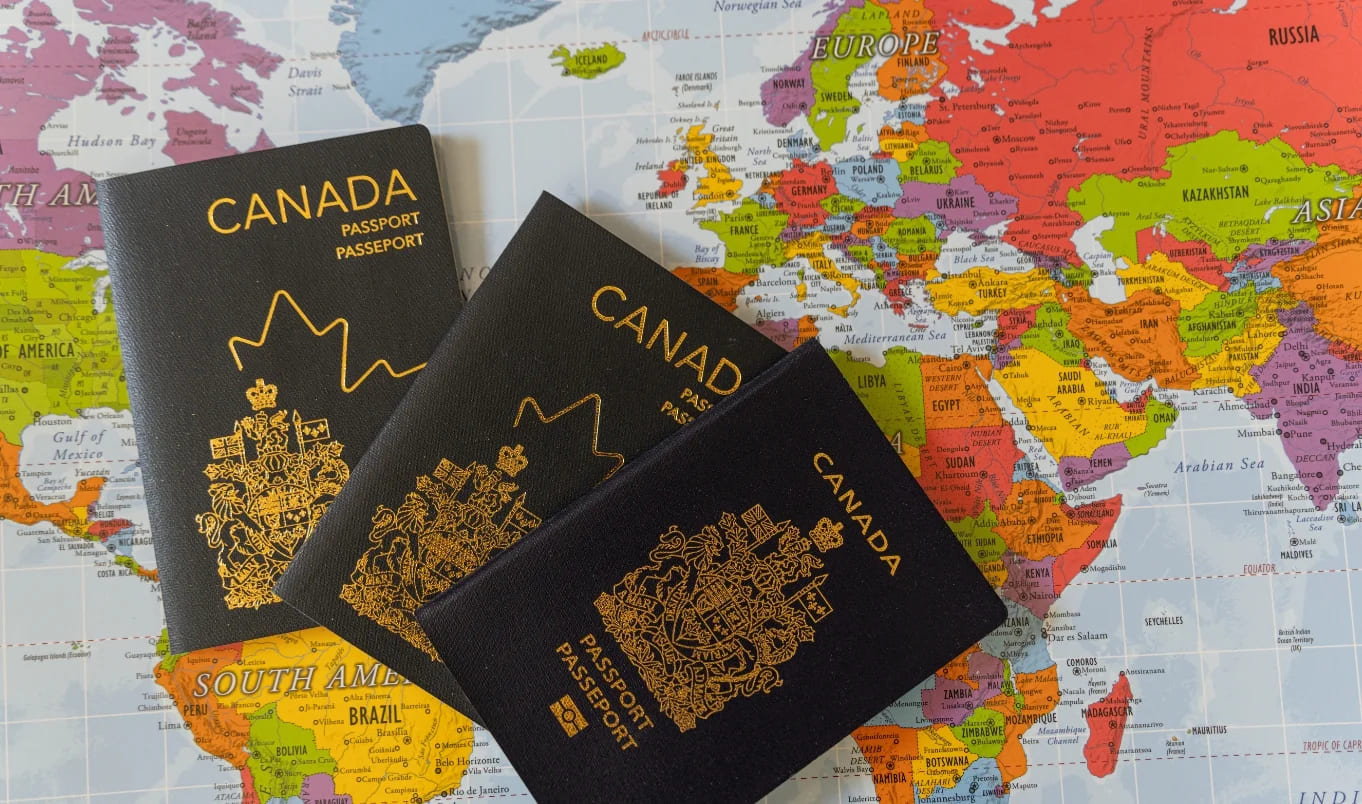Canadian Visa Types - Which One is Right for You

Strong 8k brings an ultra-HD IPTV experience to your living room and your pocket.
Canada is one of the most desirable countries for individuals seeking opportunities for work, study, travel, or permanent residency. As a result, the Canadian government offers a wide variety of visas to accommodate different purposes of entry. Understanding the various visa types available is crucial to ensuring that you apply for the correct visa based on your needs and eligibility.
In this article, we’ll explore the different types of Canadian visas, their purposes, eligibility criteria, and how to determine which visa is right for you. Whether you’re planning a short visit, seeking educational opportunities, or considering immigration, this guide will help clarify the most appropriate visa category for your situation.
Overview of Canadian Visa Categories
The Canadian visa system is divided into several categories based on the purpose of your visit. These categories include:
• Visitor Visas (Temporary Resident Visa)
• Student Visas (Study Permits)
• Work Visas (Work Permits)
• Permanent Resident Visas
• Business and Investor Visas
• Family Sponsorship Visas
• Humanitarian and Refugee Visas
Let’s take a closer look at each of these visa types and who they are intended for.
1. Visitor Visas (Temporary Resident Visa)
A Visitor Visa, also known as a Temporary Resident Visa (TRV), is for people who wish to visit Canada for short-term purposes such as tourism, visiting family, or attending conferences. A TRV allows foreign nationals to enter and stay in Canada for a limited time, usually up to six months.
Types of Visitor Visas:
Single-Entry Visa: Allows entry to Canada once, after which the visa expires once the traveler leaves the country.
Multiple-Entry Visa: Allows multiple entries to Canada during the visa's validity period, which can be up to 10 years, depending on the applicant’s passport.
Who is it for?:
Tourists: Those traveling to Canada for leisure, sightseeing, and vacation.
Family Visitors: Individuals visiting family members who reside in Canada.
Business Visitors: Individuals attending business meetings, conferences, or other short-term professional activities.
Super Visa: A special visa for parents and grandparents of Canadian citizens or permanent residents, allowing extended stays of up to two years.
Eligibility:
• A valid passport.
• Proof of financial support during the stay.
• Evidence of strong ties to the home country (e.g., a job, property, or family).
• A letter of invitation (for those visiting family).
• Medical exam (if required).
Which one is right for you?:
• Tourists and short-term visitors should apply for a single or multiple-entry visitor visa based on their needs.
• Parents and grandparents looking for extended stays with family may benefit from the Super Visa.
2. Student Visas (Study Permits)
A Study Permit allows foreign nationals to study at designated learning institutions (DLIs) in Canada. The study permit is not a visa but a document that lets you remain in Canada for the duration of your study program. A study visa may also allow you to work part-time while studying and apply for a post-graduate work permit after completing your studies.
Who is it for?:
• Individuals enrolled in academic, vocational, or professional training programs in Canada.
• Students attending elementary, secondary, or post-secondary schools.
Eligibility:
• Acceptance into a Designated Learning Institution (DLI).
• Proof of sufficient financial resources to cover tuition fees, living expenses, and return transportation.
• Medical examination and police certificate (in some cases).
• Language proficiency tests (such as IELTS or TOEFL for English, or TEF for French).
Which one is right for you?:
• International students accepted into a DLI should apply for a study permit.
• Those pursuing short courses (less than six months) may not need a study permit but can visit on a visitor visa, depending on their nationality.
3. Work Visas (Work Permits)
Canada offers various Work Permits for foreign nationals to work temporarily in the country. A work permit allows you to work legally in Canada for a specific employer, under specific conditions, or as an open work permit allowing flexibility in employment.
Types of Work Permits:
Employer-Specific Work Permit: Tied to a particular employer and location.
Open Work Permit: Allows the holder to work for any employer in Canada (with some exceptions).
Who is it for?:
• Foreign nationals with a job offer from a Canadian employer.
• International students seeking work after graduation (Post-Graduation Work Permit).
• Spouses of international students or skilled workers in Canada.
Eligibility:
• Job offer from a Canadian employer (for employer-specific permits).
• Labour Market Impact Assessment (LMIA) may be required.
• Proof of financial support.
• Compliance with medical and security clearances.
Which one is right for you?:
• Skilled workers with job offers should apply for an employer-specific work permit.
• Students who graduated from a Canadian institution may be eligible for a Post-Graduation Work Permit, which allows them to work for any employer.
4. Permanent Resident Visas
A Permanent Resident Visa allows foreign nationals to live and work in Canada permanently. This category includes a range of immigration programs designed for skilled workers, family reunification, and refugees.
Types of Permanent Resident Visas:
Express Entry: A points-based system for skilled workers under the Federal Skilled Worker Program, Federal Skilled Trades Program, and Canadian Experience Class.
Provincial Nominee Program (PNP): Allows provinces to nominate individuals for permanent residency based on their skills and the needs of the province.
Family Sponsorship: Canadian citizens and permanent residents can sponsor their spouse, children, or other eligible relatives.
Start-Up Visa: For entrepreneurs who want to start a business in Canada.
Who is it for?:
• Skilled workers, professionals, and tradespeople.
• Entrepreneurs and investors.
• Families seeking reunification with Canadian citizens or permanent residents.
Eligibility:
• Varies based on the program (e.g., Express Entry, PNP, Family Sponsorship).
• Points-based system for skilled workers (age, education, work experience, language proficiency).
• Financial resources to support family members (for family sponsorship).
Which one is right for you?:
• Skilled workers should consider applying through Express Entry or the PNP.
• Families seeking reunification should explore the Family Sponsorship program.
• Entrepreneurs and investors interested in starting a business can apply for the Start-Up Visa.
5. Business and Investor Visas
Canada offers several programs to attract foreign investors and entrepreneurs who want to contribute to the economy by starting businesses or making significant investments.
Who is it for?:
• Entrepreneurs looking to start businesses in Canada.
• Investors willing to invest a significant amount in Canadian businesses or industries.
Types of Business Visas:
Start-Up Visa Program: For entrepreneurs with innovative business ideas.
Self-Employed Program: For individuals with cultural or athletic contributions or experience in farm management.
Eligibility:
• Business proposal that supports economic growth and innovation.
• Sufficient financial resources to invest in or start a business.
• Language proficiency in English or French.
Which one is right for you?:
• Entrepreneurs with innovative business ideas should consider the Start-Up Visa.
• Self-employed individuals in cultural, artistic, or athletic fields should explore the Self-Employed Program.
6. Family Sponsorship Visas
The Family Sponsorship program allows Canadian citizens and permanent residents to sponsor their relatives to live permanently in Canada. This is a crucial part of Canada’s immigration system, which supports family reunification.
Who is it for?:
Spouses, common-law partners, dependent children, parents, and grandparents of Canadian citizens or permanent residents.
Eligibility:
• The sponsor must be at least 18 years old, financially stable, and capable of supporting the sponsored individual(s).
• The sponsored person must not be inadmissible to Canada (criminal background, health issues, etc.).
Which one is right for you?:
Canadian citizens or permanent residents wishing to bring their family members to Canada can apply through the Family Sponsorship program.
7. Humanitarian and Refugee Visas
Canada is committed to providing protection to individuals fleeing persecution, war, or disasters in their home countries. The Humanitarian and Refugee Program helps individuals who are in need of protection.
Who is it for?:
• Refugees and individuals in need of protection from persecution, violence, or human rights violations.
• Persons applying on humanitarian grounds due to exceptional circumstances.
Eligibility:
Individuals who cannot return to their home country due to fear of persecution based on race, religion, nationality, political opinion, or membership in a particular social group.
Which one is right for you?:
Individuals seeking asylum due to persecution or dangerous conditions in their home countries should apply through this program.
Canada offers a variety of visas tailored to different purposes, whether it’s for temporary visits, work, study, or permanent immigration. The key to choosing the right visa is to assess your purpose of travel, your qualifications, and the specific requirements of each visa category. From tourists to skilled workers, students to entrepreneurs, there is a visa type that suits almost every need.
By thoroughly understanding the visa types available and the application processes, you can determine which Canadian visa is right for you and take the appropriate steps to fulfill your goal of traveling or moving to Canada.
Note: IndiBlogHub features both user-submitted and editorial content. We do not verify third-party contributions. Read our Disclaimer and Privacy Policyfor details.







